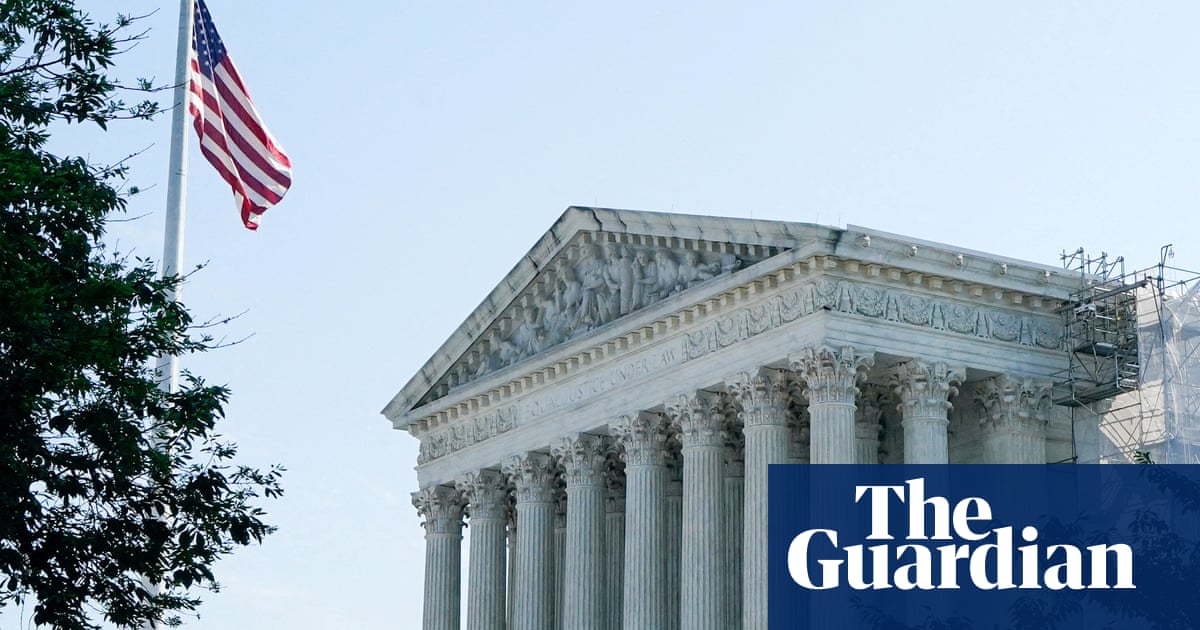TheUS supreme courton Friday permitted the so-called “department of government efficiency” (Doge), a key player inDonald Trump’s drive to slash the federal workforce, broad access to the personal information of millions of Americans in Social Security Administration data systems while a legal challenge plays out.
At the request of the justice department, the justices put on hold Maryland-based US district judge Ellen Hollander’s order that had largely blocked Doge’s access to “personally identifiable information” in data such as medical and financial records while litigation proceeds in a lower court. Hollander found that allowing Doge unfettered access likely would violate a federal privacy law.
The court’s brief, unsigned order did not provide a rationale for siding with Doge. The court has a 6-3 conservative majority. Its three liberal justices dissented.
Doge swept through federal agencies as part of the Republican president’s effort, spearheaded by billionaireElon Musk, to eliminate federal jobs, downsize and reshape the US government and root out what they see as wasteful spending. Musk formally ended his government work on 30 May.
Two labor unions and an advocacy group sued to stop Doge from accessing sensitive data at the SSA, including social security numbers, bank account data, tax information, earnings history and immigration records.
The agency is a major provider of government benefits, sending checks each month to more than 70 million recipients, including retirees and disabled Americans.
In their lawsuit, the plaintiffs argued that the SSA had been “ransacked” and that Doge members had been installed without proper vetting or training and had demanded access to some of the agency’s most sensitive data systems.
Hollander in a 17 April ruling found that Doge had failed to explain why its stated mission required “unprecedented, unfettered access to virtually SSA’s entire data systems”.
“For some 90 years, SSA has been guided by the foundational principle of an expectation of privacy with respect to its records,” Hollander wrote. “This case exposes a wide fissure in the foundation.”
Hollander issued a preliminary injunction that prohibited Doge staffers and anyone working with them from accessing data containing personal information, with narrow exceptions. The judge’s ruling did allow Doge affiliates to access data that had been stripped of private information as long as those seeking access had gone through the proper training and passed background checks.
Hollander also ordered Doge affiliates to “disgorge and delete” any personal information already in their possession.
Based in Richmond, Virginia, the fourth US circuit court of appeals in a 9-6 vote declined on 30 April to pause Hollander’s block on Doge’s unlimited access to SSA records.
Justice department lawyers in their supreme court filing characterized Hollander’s order as judicial overreach.
“The district court is forcing the executive branch to stop employees charged with modernizing government information systems from accessing the data in those systems because, in the court’s judgment, those employees do not ‘need’ such access,” they wrote.
The six dissenting judges wrote that the case should have been treated the same as one in which a fourth circuit panel ruled 2-1 to allow Doge to access data at the US treasury and education departments and the office of personnel management.
In a concurring opinion, seven judges who ruled against Doge wrote that the case involving social security data was “substantially stronger” with “vastly greater stakes”, citing “detailed and profoundly sensitive Social Security records”, such as family court and school records of children, mental health treatment records and credit card information.
